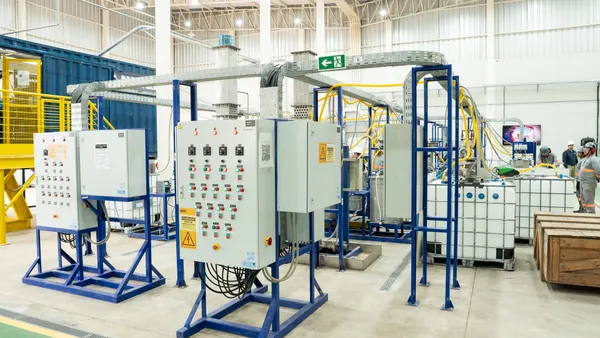Dive Brief:
- A Minnesota bill that would have allowed future certified public accountants to obtain a license with just 120 college credit hours — rather than the current 150 credit hours — stalled in the state’s legislature this year, leaving the Minnesota Society of Certified Public Accountants looking to capitalize on rising interest in similar initiatives nationwide to help push similar legislation over the finish line next year, according to Geno Fragnito, director of government relations for MNCPA.
- The bill, initially introduced in 2023, was the subject of hearings this year and was on track to be included in a larger omnibus package, but lawmakers failed to take action on the broader bill before the legislative session ended in May, he said in an interview. Instead, Minnesota’s legislature came to a “chaotic end” amid rising political tensions, leaving some issues to fall by the wayside at the end of the session, CBS News reported.
- Despite the setback, Fragnito said he is hopeful a similar bill will be introduced and passed next year as major industry players explore reducing the college credit hour requirements as a way to address the decline in college students entering the profession. “When we first started on this we were out there on the cutting edge,” he said. “Now more and more states are recognizing that, yes we can do something, and this is one of those tools that we have where we can make some incremental change.”
Dive Insight:
In recent years CFOs and finance department recruiters have been grappling with a shrinking pool of U.S. accounting professionals, leaving industry concern narrowed in on the decline in college students choosing to pursue the accounting track.
Reducing the time and cost of the education needed to become a CPA and raising starting salaries are among the strategies posited for tackling the talent problem, with both included in a draft report published by an independent task force convened by the American Institute of CPAs. The growing calls for change should help a bill on the issue gain momentum in the Minnesota legislature next year, Fragnito said. “I think there’s much broader recognition that something is needed,” he said.
Fragnito also said there’s now an emerging solution for one matter that has drawn opposition to the 120-hour rule: the concern that altering licensure requirements will lead to a patchwork of rules that would reduce accountants’ ability to travel and work in states where they are not licensed. With regard to that so-called “mobility” issue, he believes that Minnesota or other states could address that by making it so the state would recognize any licensed CPAs so long as they are in good standing.
As it stood this year, the bill in the legislature provided two paths to becoming a CPA. The new alternative would require 120 hours of college course credit (roughly the equivalent of four years of college) and two years of work experience, and the other requires 150 hours (effectively five years of college) and one year of work experience, he said. In both cases the candidate would also need to pass the CPA exam.














